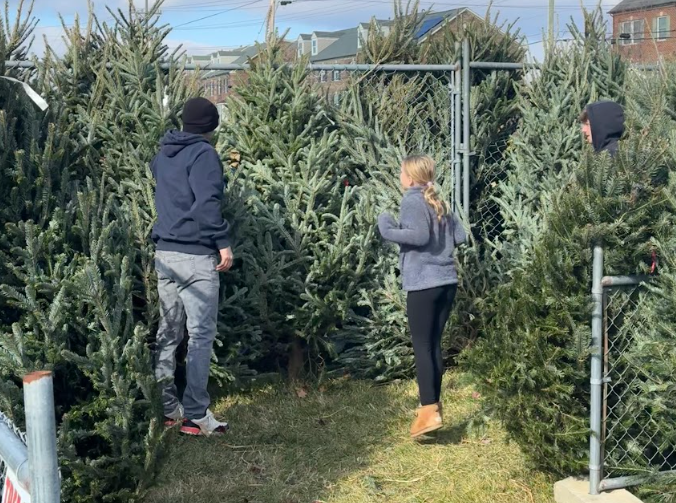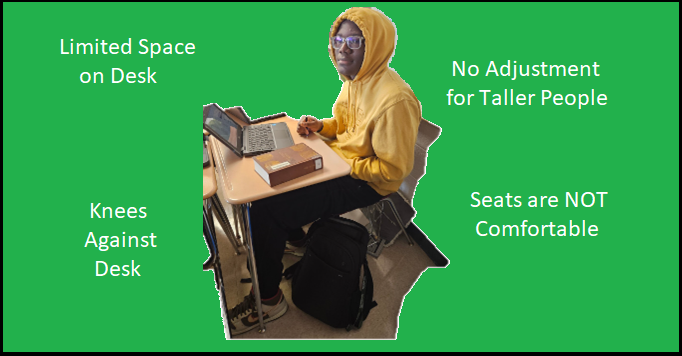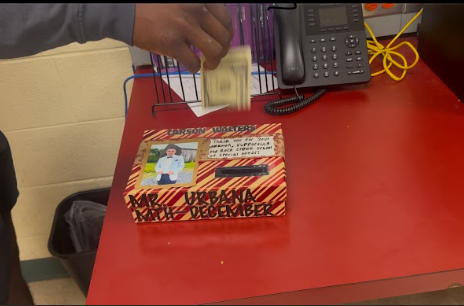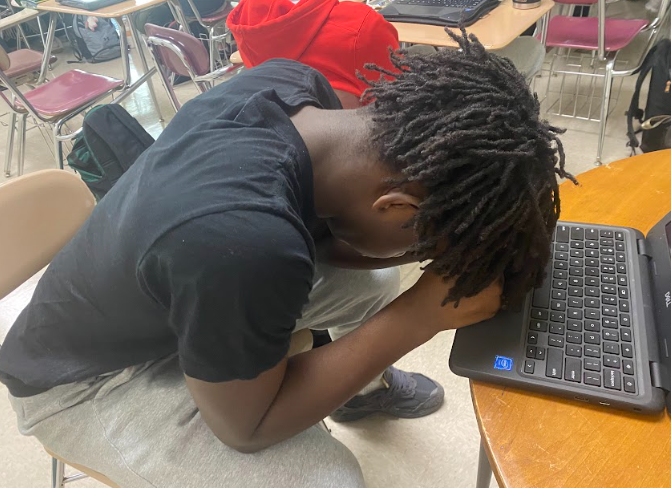How just taking a step outside can improve our mental health.
March 9, 2023
Hear me out… It sounds bizarre. Ever find yourself flourishing during the warmer months but as the colder months approach it seems to go downhill? Well, a lot of people can agree to that statement as around 0.5 to 3% of our whole entire world population suffer from a disorder called Seasonal Affective Disorder (SAD) which causes a depressed mood typically from late fall or early winter and goes away in the sunnier days of spring. Students and teachers in the school also face sadness during the colder months. Teacher Mr. Friedland says he is 100% happier during the summer and spring as he can “get outside and get more sunlight” and is a full believer that getting outside and getting sunlight benefits our mental health as he quotes “vitamin d is good and it’s nice to be out on a hot sunny day.”
You might be asking yourself why exactly this seems to happen, studies suggest that SAD is linked to the reduced exposure of sunlight you typically get in the warmer months.
Without the proper amount of sunlight our hypothalamus which controls our sleep and mood is not stimulated as much, as a result our serotonin levels are at
a low which play a major role in experiencing happiness. While the production of serotonin is at all time lows, people with SAD experience high levels of melatonin which is a hormone that produces sleepiness.
So how exactly do we fight the inevitable sadness that is felt during the colder months? A simple answer:connecting with nature. For most people their screen time breaks hours on average every single day for phone usage. How can we not? Our phone is filled with endless entertainment that could leave us scrolling for hours upon hours, during this process we find ourselves isolating not only from the
real world but from the outdoors. Connecting with nature is said to improve mental health, attention span, and empathy whilst lowering stress. A study was conducted which examined the restorative benefits from spending time in green spaces. US based students spent just 15 minutes four or more times a week in these green spaces in an active way and the results concluded that they had lowered stress, a better overall mood, and their quality of life increased.
For a lot of people getting outdoors is what makes them a happier person. “Turning on some music and kicking a soccer ball” is the solution when Friedland says he’s feeling down and Zimmerman says “I like getting out on the beach and going for hikes.”
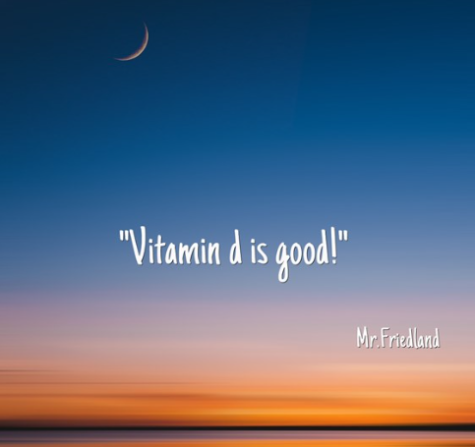
For some people they don’t experience the happiness of the warmer months and rather dread it. “I like snow, I think it’s cute, I like being cuddled up with my drinks and looking at the fire and being like WOW look at the fire”. (Audrey Dean, Grade 12). She goes on to state how she lived in England a chunk of her life and it was always so cold so now that she’s in a warmer climate she dislikes the humidity. Student Eli Zhou (Grade 12) also dreads the summer as she says “It’s humid and I don’t like the beach that much”, for Eli she prefers the autumn months where she finds beauty in the sights of falling leaves. Although these two dislike the summer time they do believe nature can act as a refuge to mental health and can be very healing to a person.
Unfortunately, this solution to improving mental health isn’t ideal for everyone as they might not enjoy the outdoors. 60% of students and teachers in Urbana when asked what they do when they have feelings of sadness reported listening to music. Most incorporate music into their day to day life whether it be listening to it in the car, in your room, when hanging out with friends, and more. “Listening to music” was a response from student Reed Herbolsheimer when asked what he does when he is feeling down. A study which was named “Music as Medicine” showed that 46.5% of the 7,581 participants used music to release and process their sadness and 81.80% listened for their happiness. We all have our ways of finding our own happiness but if you’re someone who loves nature or the sun, take that step out of your door and see how your life changes.
Cleveland Clinic. “Hypothalamus: What It Is, Function, Conditions & Disorders.” Cleveland Clinic, 16 Mar. 2022, https://my.clevelandclinic.org/health/articles/22566-hypothalamus.
“Discover the Best Free Resources of Nature.” Freepik, www.freepik.com/free-photos-vectors/nature.
Jimenez, Marcia P., et al. “Associations between Nature Exposure and Health: A Review of the Evidence.” International Journal of Environmental Research and Public Health, vol. 18, no. 9, 30 Apr. 2021, p. 4790, www.ncbi.nlm.nih.gov/pmc/articles/PMC8125471/, https://doi.org/10.3390/ijerph18094790..
National Center for Complementary and Integrative Health. “Melatonin: What You Need to Know.” NCCIH, Jan. 2021, www.nccih.nih.gov/health/melatonin-what-you-need-to-know.
“NIMH» Seasonal Affective Disorder.” Www.nimh.nih.gov, www.nimh.nih.gov/health/publications/seasonal-affective-disorder.
Scaccia, Annamarya. “Serotonin: Functions, Side Effects, and More.” Healthline, 19 Aug. 2020, www.healthline.com/health/mental-health/serotonin.
“Study Says Music Takes 13 Minutes to “Release Sadness” and 9 to Make You Happy.” Classic FM, www.classicfm.com/music-news/music-to-release-sadness-and-feel-happier-study/#:~:text=While%2090.15%20percent%20participants%20used.
Wikipedia Contributors. “Nature Photography.” Wikipedia, Wikimedia Foundation, 16 Oct. 2019, en.wikipedia.org/wiki/Nature_photography.









